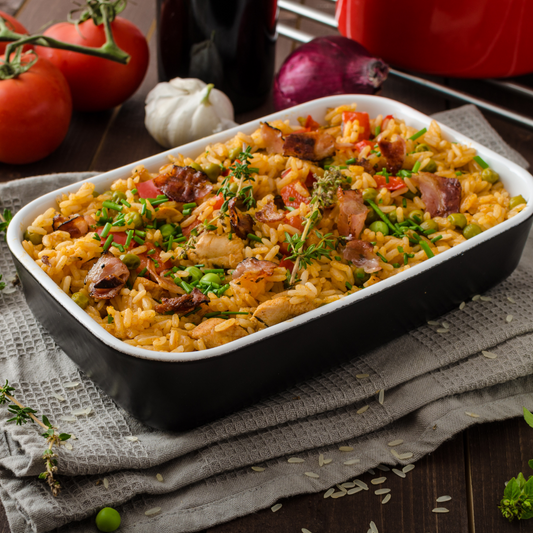
Bread is a staple in many households around the world, and with the rise of homemade and artisanal bread making, wholesale bread mixes have become increasingly popular. Whether you are a bakery owner looking to expand your offerings or a home baker wanting to experiment with different flavors and textures, there is a wide variety of wholesale bread mixes available to suit every taste. From classic sourdough to hearty rye, this guide will walk you through the different types of bread mixes and their unique characteristics.
Sourdough Bread Mixes
Sourdough bread has a tangy flavor and chewy texture that is beloved by many. Making traditional sourdough bread from scratch can be time-consuming and requires a lot of skill, which is why sourdough bread mixes are a great option for both professional and home bakers. Here are some key points to keep in mind when choosing a sourdough bread mix:
Key Points:
- Sourdough starter: Some bread mixes come with a sourdough starter included, while others require you to create your own starter. Make sure to follow the instructions carefully to activate the starter before mixing the dough.
- Flour blend: Different sourdough mixes use varying combinations of flours, such as all-purpose flour, whole wheat flour, or rye flour. Choose a mix that aligns with your preferences and dietary restrictions.
- Fermentation time: Sourdough bread typically requires a longer fermentation time compared to other types of bread. Be prepared to let the dough rise for several hours or even overnight.
Rye Bread Mixes
Rye bread is a hearty and flavorful option that is perfect for sandwiches, toast, or enjoyed on its own. Rye bread mixes often contain a higher percentage of rye flour compared to other bread mixes, giving the bread its distinctive taste and texture. Here are some considerations when choosing a rye bread mix:
Considerations:
- Rye flour percentage: Some rye bread mixes contain a majority of rye flour, while others may be a blend of rye and wheat flours. If you prefer a stronger rye flavor, opt for a mix with a higher rye flour percentage.
- Add-ins: Rye bread pairs well with ingredients like caraway seeds, sunflower seeds, or dried fruit. Look for mixes that include these add-ins for a unique flavor profile.
- Baking method: Rye bread benefits from a longer baking time at a lower temperature to ensure that the interior is fully cooked without burning the crust. Follow the baking instructions carefully for the best results.
Whole Wheat Bread Mixes
For those looking for a healthier bread option, whole wheat bread mixes are a great choice. Whole wheat bread is rich in fiber and nutrients, making it a nutritious addition to your diet. When selecting a whole wheat bread mix, consider the following factors:
Factors to Consider:
- Whole grain content: Look for bread mixes that contain 100% whole wheat flour to ensure that you are getting the full nutritional benefits of the whole grain.
- Sweeteners: Some whole wheat bread mixes may include sweeteners like honey or molasses for added flavor. If you prefer a less sweet bread, opt for a mix with minimal added sugars.
- Texture: Whole wheat bread can be denser than white bread due to the higher fiber content. Consider adding ingredients like oats or seeds for added texture and flavor.
Artisan Bread Mixes
If you are looking to create bakery-style artisan bread at home or in your bakery, artisan bread mixes are the way to go. These mixes often include high-quality ingredients and unique flavor profiles that set them apart from traditional bread mixes. Here are some features to look for in artisan bread mixes:
Features:
- Ancient grains: Artisan bread mixes may contain ancient grains like spelt, kamut, or einkorn for a distinctive flavor and texture.
- Flavor infusions: Look for mixes that include flavor infusions like herbs, spices, or citrus zest to elevate the taste of your bread.
- Crust enhancers: Some artisan bread mixes come with crust enhancers that help achieve a crispy, golden crust that is characteristic of artisan loaves.
Gluten-Free Bread Mixes
For individuals with gluten sensitivities or celiac disease, gluten-free bread mixes offer a safe and delicious alternative to traditional bread. These mixes are made with gluten-free flours like rice flour, almond flour, or tapioca flour to create a light and fluffy loaf. When choosing a gluten-free bread mix, keep the following considerations in mind:
Considerations:
- Certifications: Look for gluten-free bread mixes that are certified gluten-free to ensure that they meet strict standards for gluten content.
- Texture: Gluten-free bread can have a different texture than traditional bread due to the absence of gluten. Add ingredients like xanthan gum or eggs to improve the texture of the final product.
- Flavor profile: Experiment with different gluten-free bread mixes to find one that matches your taste preferences. Some mixes may have a nutty flavor from almond flour, while others may be milder in taste.